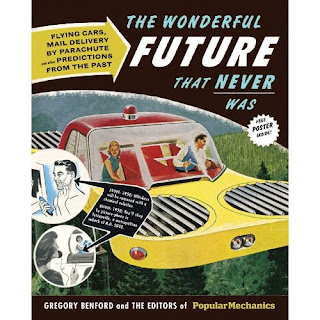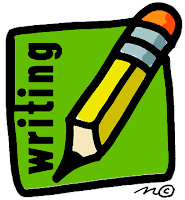 A native of North Carolina, Kent Westmoreland grew up on a farm; a locale he did not cotton to. After high school, he moved to Charlotte to seek fame and fortune. Instead, he worked as a haberdasher, a waiter, and a painter (of barns) while obtaining an Associates degree from Central Piedmont Community College. Armed with his degree he worked as a software developer for two years before stumbling into New Orleans. Since moving to New Orleans he has earned a Bachelors Degree from Holy Cross College and has performed many roles in the IT field. He is currently a project manager with a bank. Westmoreland and his wife Leslie live with their three cats in uptown New Orleans.
A native of North Carolina, Kent Westmoreland grew up on a farm; a locale he did not cotton to. After high school, he moved to Charlotte to seek fame and fortune. Instead, he worked as a haberdasher, a waiter, and a painter (of barns) while obtaining an Associates degree from Central Piedmont Community College. Armed with his degree he worked as a software developer for two years before stumbling into New Orleans. Since moving to New Orleans he has earned a Bachelors Degree from Holy Cross College and has performed many roles in the IT field. He is currently a project manager with a bank. Westmoreland and his wife Leslie live with their three cats in uptown New Orleans.His award-winning Burleigh Drummond short stories have appeared in the magazines Blue Murder, Tangled Web, Thrilling Detective, and Alfred Hitchcock Mystery Magazine. His first novel Baronne Street, a Burleigh Drummond mystery, was published in September 2010.
After a recent reading some members of the audience suggested we continue the discussion of Baronne Street over a cup of coffee. My wife says I love to pontificate. She must be correct because I accepted the offer without hesitation.
For those who aren’t familiar with Baronne Street, the protagonist is Burleigh Drummond. Twenty-eight year old Drummond is the fixer New Orleans bluebloods and politicians run to when their problems become too complicated for their titanium-hearted lawyers.
In Baronne Street Drummond must employ his Machiavellian skills to solve and avenge the brutal rape and murder of Coco Robicheaux, an ex-girlfriend. As Drummond investigates he discovers Coco lived a clandestine existence in the city’s netherworld and had been drafted as an unwitting pawn in a plot to disrupt the upcoming mayoral election. As often happens with pawns, she was sacrificed.
During the discussion one of the most interesting questions posed was “What were the influences that led you to create the character of Burleigh Drummond?”
I have lived with Burleigh Drummond through four short stories, a novel, and outlines for several more of each. His biography, his life events, his motivations are what I think about. It had been quite some time since I had given any thought to how the character was developed.
Even before fleshing out the character I knew setting was a key component. I wanted to place the series in a small city with an insular society. A city controlled by the old money crowd who fears progress may disrupt their lives; for that reason they will thwart progress by any means necessary.
Initially I had planned to base the series in Palm Beach, but Lawrence Sanders had beaten me to that prime real estate with his fine Archie McNally series. In retrospect Palm Beach would have been the wrong choice. Palm Beach is less of a city and more of a winter vacation community for the ultra-wealthy; they only stay for “The Season”. And then there is all that beautiful sunshine, white sand, and crystal-blue ocean. Burleigh Drummond needed to operate in a dark city with even darker secrets.
Then I discovered New Orleans. A city filled with secret societies whose members don masks once a year and toss trinkets to the masses. The bluebloods make backroom deals to restrain new business and influence politicians. The politicians bleed every dime from the city coffers and do nothing for the city. Then the bluebloods and politicians dance together at formal balls while the city decays.
New Orleans was the perfect location for Burleigh Drummond to set up shop.
An early decision was to create a character who went against type for the hard boiled genre. He wouldn’t carry a gun or get involved with fisticuffs. His primary weapons would be brains, charm, and aplomb. Occasionally trickery, blackmail, and bribery would be used; I never intended for Drummond to be a choir boy.
For irony I chose to call the character Burleigh Drummond because it sounds like a tough guy’s name.
During the discussion I remembered three fictional detectives are in Drummond’s DNA: James West from the TV series The Wild, Wild West, Sherlock Holmes, and Phillip Marlowe.
What I always loved about James West is wherever he went people said “There’s James West, secret agent for the Secret Service”. It was so absurd. But I realized this would happen to Burleigh Drummond since he operates in a small city which only has three degrees of separation as opposed to the standard six. So I worked that concept into the stories. He seldom engages anyone who doesn’t know him or know of him. In one of the short stories a police detective mentions Drummond’s clients consider it a status symbol to say “Burleigh Drummond is fixing the situation for me.”
Many people think Sherlock Holmes and Dr. Watson are middle-aged or older; probably because older actors have primarily been cast in those roles. (At forty-five Robert Downey Jr. is middle-aged.) Holmes began his career as a consulting detective after graduation from college; he was about twenty-four. He was twenty seven or twenty-eight when he met Dr. Watson and Watson began chronicling their adventures. Watson was few years older; in addition to being a physician Watson was an ex-military man who missed the excitement of war.
Also more often than not Holmes’ clients were wealthy blokes and government officials asking him to fix a situation for them (the italics are mine).
Baronne Street begins when Drummond is twenty-eight and has been working as a fixer for three years. His best friend and occasional partner, Morgan Cross, is obviously an ex-intelligence agent, though it is never explicitly stated. Like Watson, Cross knows his way around guns and death.
Phillip Marlowe – How could he not be an influence? Marlowe is the platinum standard for the hard-boiled genre. He is cool, hip, a great wisecracker, and obsessed with the truth while seeming not to care. Still he is haunted by his inability to make things right in an imperfect world. Just like Burleigh Drummond.
If you would like to continue the discussion there’s always email. I can be reached at Kent@KentWestmoreland.com or if you’re shy just go to the web site – www.KentWestmoreland.com .
—Kent Westmoreland











